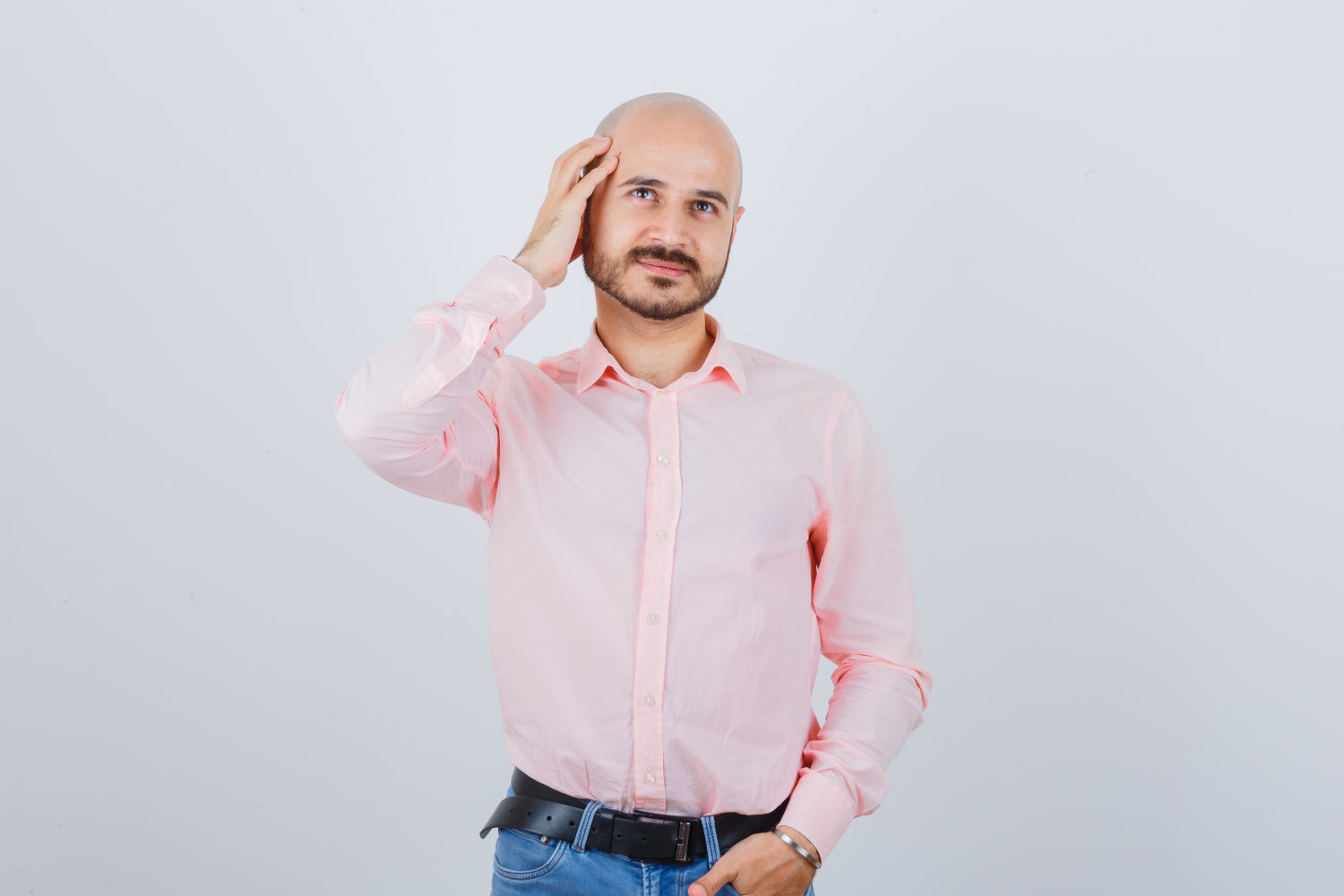Georgia Ligda
MD, Plastic Surgeon Ph.D.
Hair transplant expert
Psychological impact of scalp hair loss
- Scalp hair loss changes the image of patients and affects negatively their psychology.
- The earlier the onset of AGA and the greater the Norwood grade, the worse the psychological impact.
- The receded HL alters the facial image as there is no apparent upper limit of the forehead / face.
- Baldness, as loss of the natural scalp hair, is mentally perceived as a sign of aging and patients are consideredα older than their actual age.
- The negative impact is not only on patients’ personal life but also on their social and professional one.
- In conclusion patients become very concerned and nervous about their appearance as well as about their surgical treatment
The pre-operative consultation
Patients are usually very anxious as they expect maximum improvement and or complete restoration of their hair loss.
Depending on the age and the possible future progress of their AGA pattern, patients need to consult about hair transplantation as a procedure as well as about their personal commitment to a possible long term hair restoration plan.
Consultation is not supposed to fully meet patients’ expectations but present a personalized hair restoration plan.
After a proper consultation patients will have time to comprehend the hair transplantation procedure and get psychologically well prepared for the transplantation day.
On the hair transplantation day
Patients need to meet the whole medical team and ask whatever questions they may have regarding their case. Patients need to feel safe and well taken care of.
Taking their vital signs (BP, Pulse rate, oxygen saturation), administering medication by explaining their type, explaining the necessity of the hair cut and or the hair dying process, explaining the two parts of the hair transplantation surgery (extraction and placement), is information that will prepare the patients for the process and assure them about the medical team’s specialism.
- If the patient is very nervous and stressed then administering some kind of sedation like sedatives (for example Xanax tabs) or antihistamines that cause drowsiness (for example Ucerax tabs), may be very helpful.
- Keeping the patient calm is extremely important for the smooth progress of the hair long transplantation process.
Special cases
Young patients up to the age of 25, may come to the clinic accompanied by a parent who may be present through the whole consultation with the doctor, during the break between the two parts of the transplantation as well as at the end of the day for the post operative instructions.
Patients with psychiatric problems who are receiving corresponding medication may come to the clinic with their partner to feel better and more comfortable.
The medical team
- Behaviour of the medical team has a major impact on patients’ psychology.
- The doctor must explain the surgical process to the patient step by step.
- The team should never show in any way any kind of anxiety or worry about the case.
- The team must always monitor the patients’ reactions that may indicate complications and may need immediate care.
- The team must be well trained for handling the stressed patient and treating any possible manifestation such as fainting, heart rate problems, panic attack etc.
Why is it necessary to control the patient’s anxiety?
Hair transplantation is a team work of both the medical team and the patient. Each and everyone of them should feel well and calm enough to proceed with a smooth surgical procedure.
Anxiety may cause pathological manifestations in the patient such as fainting, panic attack, increase of BP and or heart rate, loss of consciousness, seizures etc. that may force the medical team to stop the transplantation and even worse may put the patient’s life in danger.
After the hair transplantation
Hair transplantation is finished on the day of the surgery only as a surgical procedure.
Skin healing and permanent uptake of the transplanted hair follicles are completed in about 10 days post-operatively while final hair growth is evaluated in 8-10 months post-op.
Anticipation of the hair transplantation result increases patients’ anxiety. Continuous contact with patients for a proper post operative follow-up, makes them feel safe and well watched out during this long period of new hair growth.
Conclusion
- proper and full consultation pre-operatively
- make the patient feel safe and comfortable before entering the surgery room
- possible administration of stress control medication
- possible presence of family members of the patients
- care and monitoring of patients during the hair transplantation process
- proper post-operative follow-up



